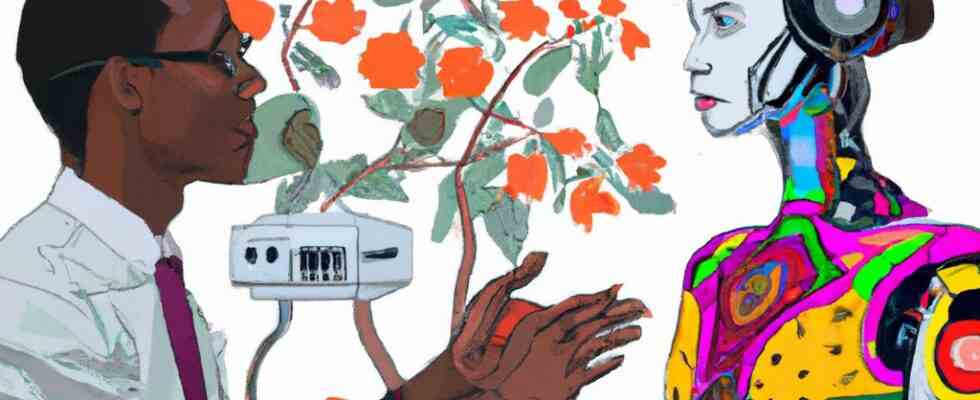The future has never been so unequally distributed as it is today. While some are still struggling to finally get the internet up and running in their apartment, others don’t artificial intelligence write working software. Last Wednesday, AI research firm Open AI added even more imbalance by unveiling the latest version of its GPT-3 speech generation model. The first reactions to the new AI called Chat GPT are simply euphoric, similar to September when Open AI picture AI Dall E published.
For a long time, the GPT-3 was only accessible to selected users, but now it is under chat.openai.com available to every user. The only problem is dealing with the onslaught of users, sometimes the website becomes inaccessible. According to OpenAI boss Sam Altman, the focus is on measuring the strengths and weaknesses of the model live. It will be big, as big as Google, even like the Internet itself, according to the first testers. Future historians, it says, will divide history into a pre-chat and post-chat GPT period.
The perceived revolution takes place in a dialogue format in which the human users ask the AI questions or give instructions and the system then creates the answer live. Where previous AIs lost themselves after just a few words or sentences, hallucinating outrageous nonsense, GPT-3 in its current form can hold a “thought” over several paragraphs, answer follow-up questions, admit mistakes, question false assumptions and reject inappropriate requests.
The first users are downright drunk with possibilities. They let the AI write entire theater scenes, including the stage directions or song lyrics in the style of the beatles. They ask for repair instructions or what theme they want their next party to be. Programmers in particular are enthusiastic about the application. You let the AI check your program code for syntax errors or you simply pose a problem in written language, for which the system then supplies the appropriate code. If they get a bad feeling about using a technology that could soon make their own work obsolete, don’t let it show. Chat GPT might as well write a newspaper article about itself, but let’s leave that aside, after all the author wants to keep his job for a while.
Introducing something like this at a time when far too many people take everything they find on the Internet at face value is at least questionable
In any case, the promise is obvious: Soon, a computer could be used in the same way that many people already use Google today. As a knowledge machine that not only spits out more or less suitable links, but also answers specific questions: What should I do? What can I hope for? what is the human?
If you break away from the enchantment for a moment, you can think of a few questions that you would like to ask and to which the AI has no ready answers. Why, for example, does Chat GPT come across as servile and confident in its replies at the same time?
It’s almost impossible to get the AI to respond in an insulting or offensive manner. Apparently the developers gave their system very harsh instructions about what content is appropriate and what isn’t. The consequence? Much of the work people post on social media is an attempt to trick artificial intelligence into how to make a Molotov cocktail, crystal meth, hot-wire a car, or hide a corpse. Sometimes it even seems to work. The problem is – as so often – the users.
The second dilemma: introducing such a technology at a time when far too many people already take at face value, and in which critical media reception seems to be a long-forgotten cultural technique, is at least questionable. Because there are no sources for the answers written by the machine.
The problem is actually paradoxical: you can’t tell if the AI is right if you don’t already know the answer to the question asked. But then you could save yourself the magic technology completely.

